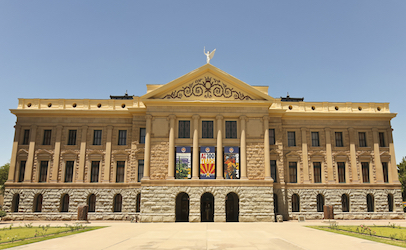 At least 30 states, according to the National Conference of State Legislatures, are already open for new legislative business. Most others will join the legislative season by next month.
At least 30 states, according to the National Conference of State Legislatures, are already open for new legislative business. Most others will join the legislative season by next month.
They are essential to food safety if for no other reason than state legislatures provide all or partial funding for many of the nation’s nearly 3,000 local health departments. Those departments are responsible for surveillance of foodborne illnesses and other vital public health responsibilities.
In addition to budgets, state lawmakers are sure to introduce policy bills including some involving food safety. Last season, Maine, Wyoming and North Dakota all advanced measures promising a less regulated world with “Food Freedom” legislation.
Since 2010, state legislatures have been tilted relatively dramatically toward the GOP. According to the Denver-based NCSL, Republicans control 32 of 50 state legislative chambers and share control of three others. Republicans currently hold 1,019 more state legislative offices than do Democrats.
Democrats picked up about 25 state legislative seats in 2017, mostly in Virginia. Some states — Montana, North Dakota and Texas — are among those opting not to meet during election years.
The 2018 legislative season in Colorado got underway with a little double-entendre. State Rep. Kimmi Lewis and Sen. Vicki Marble introduced a General Assembly bill entitled “Beef Country of Origin Recognition System,” which they call the Beef COORS bill. It’s their answer to the country of origin labeling (COOL) question.
The Beef COORS bill has nothing to do with the world’s largest single brewery in Golden, CO, now owned by Molson Coors Brewing Co.
Whatever confusion there might be between Beef COORS and Coors beer probably won’t be around long. If passed, the bill would require Colorado retailers to post a placard in the area where beef products, including ground beef, are being sold. The purpose is to inform consumers on whether the products are from animals born, raised and slaughtered in the United States, as opposed to meat that is imported or derived from foreign animals.
Where’s the beef from?
The Billings, MT-based Ranchers-Cattlemen Action Legal Fund, United Stockgrowers of America, otherwise known as R-CALF USA, is behind the Lewis-Marble bill. R-CALF, a producer-only cattle trade association, has a significant presence in Colorado.
The Beef COORS bill targets the nation’s major beef suppliers, especially Greeley, CO-based JBS USA, part of Brazil’s JBS that is known as the world’s largest protein producer. Current federal regulations permit the sale of beef products in Colorado with the “Product of the U.S.A.” label when, for example, a multinational meatpacker like JBS imports beef from Australia and subsequently unwraps and rewraps the meat before selling it to a retailers.
The “Product of the U.S.A.” label can also be used in Colorado on beef derived exclusively from cattle born and raised in Mexico and Canada and then imported into the U.S. for immediate slaughter.
“The Beef COORS bill corrects the federal government’s deceptive labeling scheme by reserving the “USA Beef” placard only for beef exclusively derived from animals that were born, raised, and slaughtered in the United States,” said Lewis who also owns and operates the Muddy Valley Ranch in Kim, CO.
“The public will finally be able to distinguish between beef produced exclusively under the United States’ production and food safety standards versus beef produced in countries with different production standards and food safety systems that are not identical to ours.”
Lewis and Marble introduced a similar bill during the 2017 General Assembly session. They believe support dried up after JBS made a $12.5 million gift to Colorado State University. Lewis says the JBS gift had a “chilling effect” on the Legislature.
“We think our chances for a fair hearing this year will be far better than we had last year and because our bill is a no-nonsense bill that gives consumers important information about where their beef was actually produced, we think most Colorado legislators will enthusiastically support it for their constituents,” she said.
Meanwhile next door in Utah, a bill has been introduced to make it illegal to use drones, all-terrain vehicles, and dogs to harass farm animals. An attorney for the Animal Legal Defense Fund said the drown bill is a first of its kind.
Some animal activists have threatened to use drones to spy on animal agriculture, making the Utah bill worth watching.
(To sign up for a free subscription to Food Safety News, click here.)
